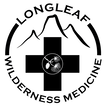Winter Expedition
Scene: Winter camping expedition in the White Mountains of New Hampshire. Elevations range from 2500-5000 feet. The group is carrying gear with backpacks and plastic expedition sleds.You are 15 miles from a trailhead.
Weather: Highs around 0ºF, lows dipping to -30ºF at night
Patient Presentation (Day 4): A 36 year old male participant on your trip approaches you after breakfast and mentions that he slept poorly and feels like he may be developing a cold.
Initial Assessment: Airway, breathing and circulation are adequate. Patient did not have a loss of consciousness and has no back or neck trauma. Patient is protected from the environment in warm, dry clothing.
Focused Assessment: SAMPLE history reveals that the patient feels fatigued and has nasal congestion. He is taking prescription medications for depression. He recently flew on an aircraft to get to New Hampshire for the expedition.
Physical exam is unremarkable. Vital signs are within normal limits
What’s next?
Provider questions:
Weather: Highs around 0ºF, lows dipping to -30ºF at night
Patient Presentation (Day 4): A 36 year old male participant on your trip approaches you after breakfast and mentions that he slept poorly and feels like he may be developing a cold.
Initial Assessment: Airway, breathing and circulation are adequate. Patient did not have a loss of consciousness and has no back or neck trauma. Patient is protected from the environment in warm, dry clothing.
Focused Assessment: SAMPLE history reveals that the patient feels fatigued and has nasal congestion. He is taking prescription medications for depression. He recently flew on an aircraft to get to New Hampshire for the expedition.
Physical exam is unremarkable. Vital signs are within normal limits
What’s next?
Provider questions:
- What is your assessment and treatment plan for this patient?
- What problems do you anticipate if this condition does not resolve?
- What factors may have contributed to the patient’s current condition?
- Should the patient be evacuated?

